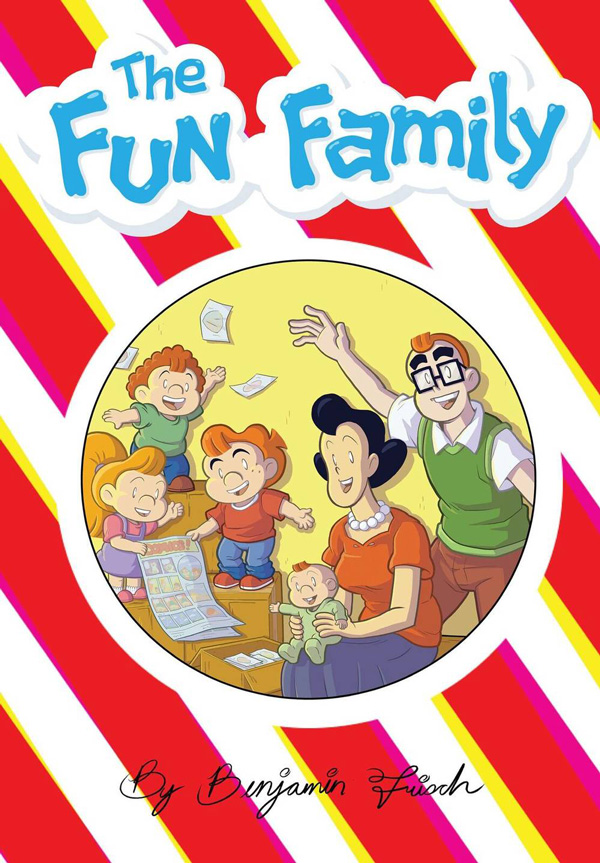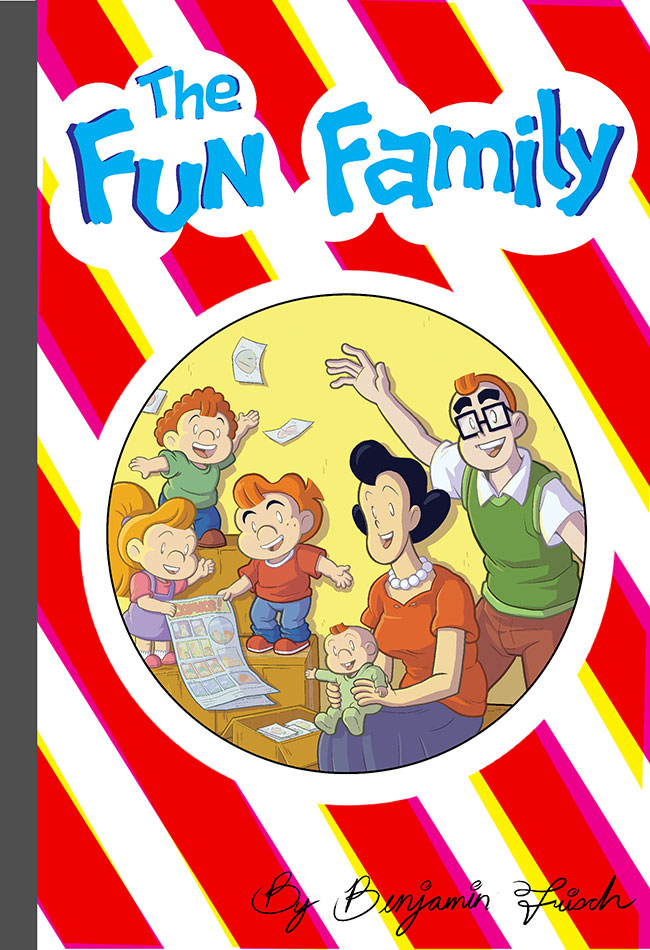Benjamin Frisch’s The Fun Family is one of those works that you think you know what it is about, but you don’t really. That’s because, on one level, it ticks all the boxes for parody. It concerns a Family Circus like family with a father who creates Family Circus like comics about his own family. The obvious trope is that America’s perfect sweetheart of a family unit is sure to have some darkness lurking. And from there you think, will reveal itself, perfection is revealed as an illusion, family falls into various levels of depravity for us to laugh at.
That’s not exactly far from the mark as it appears on the surface, but any resemblance between the cliches I just laid out and what actually happens in The Fun Family are really thin. The Fun Family manages to defy expectations by opting for things that too many shy away from in works like these — depth and truth, for instance, resulting in remarkable insight.
It all starts one Thanksgiving as the Fun family gathers together over the meal to count their considerable blessings. Less charming and more comically cloying, the day is disrupted by an automated phone call from a hospital informing them that their grandmother, cartoonist Robert Fun’s mother, is dead.
Robert doesn’t handle the news well at all — mortality was never part of The Fun Family universe, after all. Robert bottles it all in and soon reveals to his oldest son Robbie that he’s been bottling in a whole lot over the years. I won’t tell you the secret, but let’s just say it involves a devotion to the exact kind of manufactured emotional lie made physical that The Fun Family comments on.
So right there, you have heavy dysfunctional family observation number one — parent confides in child about his own perverse secrets, creating collusion with the child for marital problems. There are plenty more to follow, as the family careens into suffering and animosity, resulting from the split between the parents and each’s attempt — or lack of — to navigate their new life of freedom. With their heads stuck so far up their own rear ends, the self-indulgence begins to weigh on the kids, who have been forced to separate and choose sides as well. The parents are on their own journeys, regardless of the parents’ needs.
Robbie himself takes the biggest brunt of familial responsibility, with non-functioning and self-tormenting Robert crawling into a steaming pile of self pity and checking out on the family. Robbie begins to make choices that put him in the role of the adult — a classic in divorced families — and this role cements his future alienation from the family, and the baggage he is destined to lug around forever.
By the end, the familial history comes full circle. It gives nothing away to say that everyone has moved on except Robbie. If you know anything about divorce, you know that’s Robbie’s inevitable fate — another person carting around the burdens of his parents that can’t be shaken, even as the ones who created the problems get off conscience-free.
I expected a satire about the sanitized self-perception of the American family through its own popular art, but such a on-target fable of the divorce dynamic took me by total surprise. Frisch’s art work keeps the popular comics reference always in the frame, but the book’s strength is that it never becomes a prisoner of its premise — Frisch allows it some emotional and observational room that will make it last longer than the more simple parody it appeared to be.





